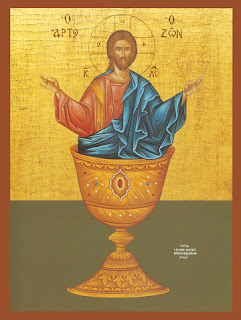A Life-giving Forgiveness
10th Sunday after Pentecost
Matthew 18.23-35
Forgiveness is a hot topic right now in the news as there is consideration being given to canceling student loan debt. Making a political statement one way of the other on this issue is well beyond the scope of this essay. However, one of the most common objections I see to loan forgiveness has to do with fairness. People are complaining that it isn’t fair that they had to pay all their debts off so why shouldn’t this generation have to do the same? There is a real fear that this act of forgiveness might lead to an entitlement attitude where a whole generation will get off the hook for paying back what they owe.
This week’s gospel reading is about similar themes. Forgiveness. Fairness. But even more importantly about how God forgives and how that should shape how we forgive.
This may be among the most pointed, clearest teachings on forgiveness in all of Scripture. It spells out exactly what Jesus taught us in the prayer he gave us where it says, “Forgive us our trespasses as we forgive those who trespass against us.” Many translators use the words, ”Forgive us our debts as we forgive our debtors.” The clear idea here is that we cross boundaries and offend God and that other people will regularly cross boundaries that offend us. God forgives. We forgive.
One of my favorites experiences in the Church is Forgiveness Sunday. This is how we kick off the Lenten season - the time of preparation that leads to Pascha. In this service everyone present asks everyone else for forgiveness. “Forgive me” is followed with a prostration or bow and the answer comes back, “God forgives.” It is incredible moving and deeply meaningful to ask for and receive forgiveness repeatedly in this concentrated way. And Fr. Steven extends this practice into the weekly Divine Liturgy just before receiving the Eucharist himself with the words, “Forgive me brother and sisters.” And we all say, “God forgives.”
Many streams of Christianity that I have known in the past have a strong emphasis on God as a God of “retributive justice.” Among the most refreshing, life giving aspects of the Orthodox Church is the simple absence of this idea in our theology. We are free to proclaim with the Apostle John that “God is love.” Anything else that can be said of God can be filtered through this first. So, yes, God is a God of justice but his justice - unlike what the world and many parts of Christendom offers - is a loving justice.
Christ was the voluntary victim of the greatest injustice ever committed: Killing God Himself. And yet He proclaimed from the cross, “Father, forgive them for they don’t know what they’re doing.” Whatever injustice or unfairness we may encounter in our daily life, may God give us the strength to pray the same.
